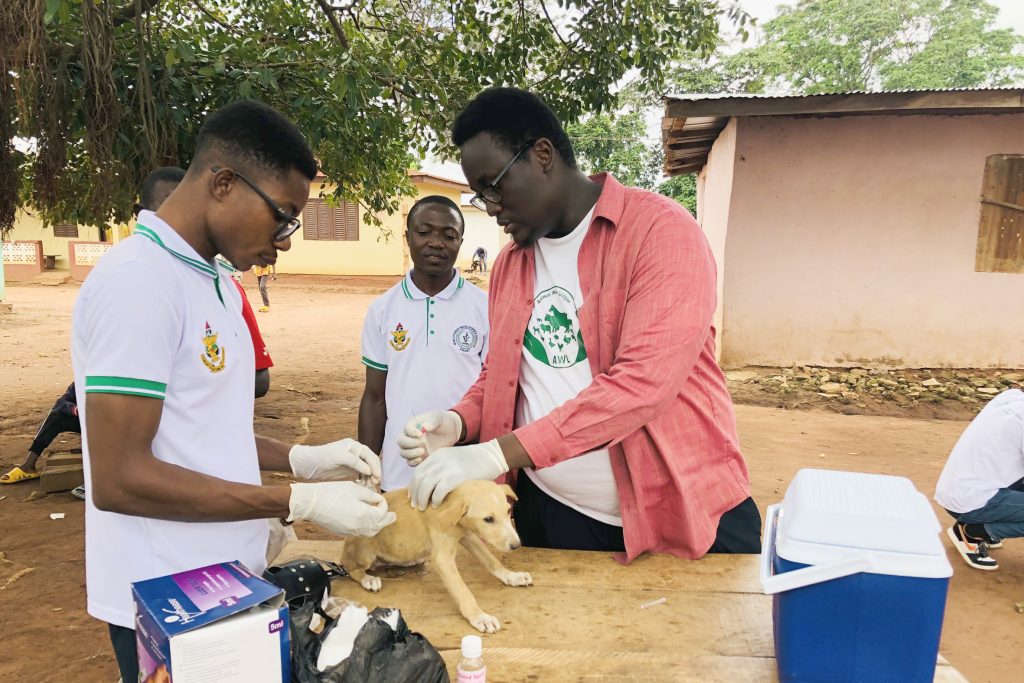
The Western Region is said to be among the top 4 regions in the country with high rabies cases recorded.
This was made known by Mr Silverster Segbaya of the John Hopkins Centre For Communication Programs funded by the USAID.
Speaking in an interview at the sidelines of the 2022 Annual Performance Review by the Western Health Directorate of the Ghana Health Service (GHS) on Tuesday, March 28, he indicated that rabies is a zoonotic disease that can be transmitted from animals to humans and vice versa, typically from dog bites but can also be transmitted by cats and any other animals that get bitten by infected animals.
Mr Silverster Segbaya said the country needs to work very hard to eliminate the disease because it is deadly and preventable. After all, there are vaccines available to vaccinate dogs and regular vaccination on annual bases to eliminate it.

He said, “We typically won’t vaccinate humans because it is very expensive, but we can educate the population on key prevention methods to take to reduce the risk of getting rabies… Now the rabies virus is very tricky and depending on the part of your body you get bitten, you can begin to see signs and symptoms within one month, a week or even a year.”
He said in the event of a dog bite or an animal bite, one should take the first step in washing the bite side for 15 to 20 minutes with soap under running water and get immediate medical attention.
He said, “Nobody should go to the drug store to buy medicine to treat themselves after an animal bite especially when it is a dog, cat or bat but rather wash the bite side immediately and use normal soap for a long period of approximately 15 minutes.”
Mr Sylverster Segbaya further revealed that there is a global campaign to eradicate rabies by the year 2030, an initiative being supported by the Food and Agriculture Organization, World Organization for Animal Health, World Health Organization, USAID and several international partners.
Source- 233Times.net




